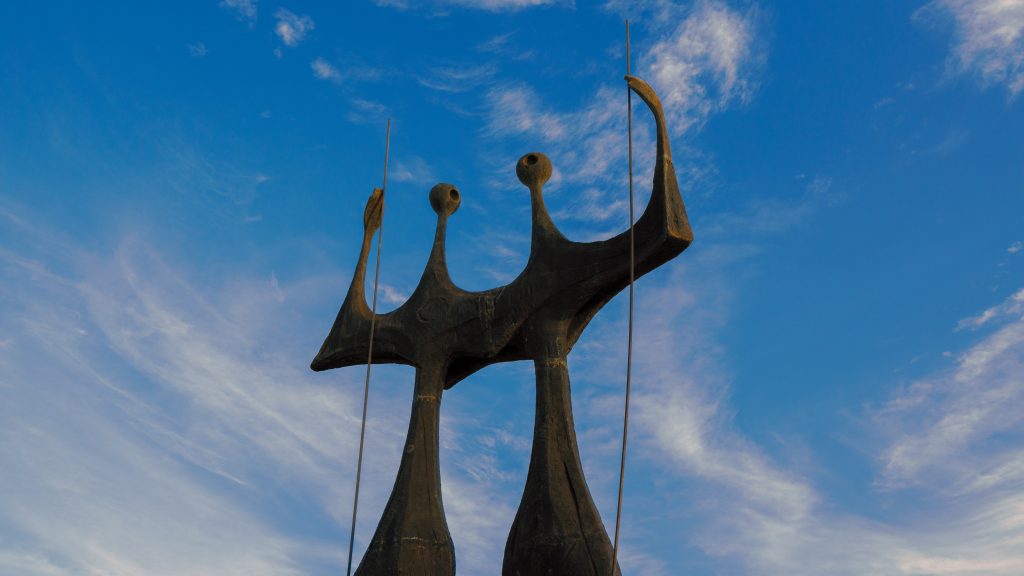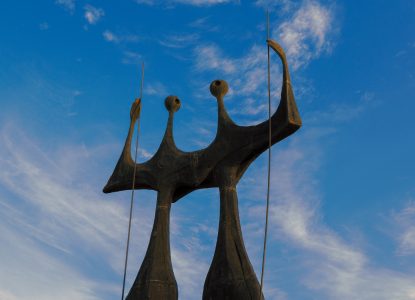By Gary Doxey, ICLRS
–
On August 8-10, The International Center for Law and Religious Studies (ICLRS) and Centro Brasileiro de Estudos em Direito e Religião (CEDIRE) held a conference involving religious and civil society leaders from around the world entitled “Building Bridges, Breaking Barriers: The Role of Religious Freedom in Building a Free, Just, and Mutually Supportive Society. The conference, held in Brasilia, Brazil, was especially significant due to Brazil’s upcoming G20 Presidency in 2024. Several delegates from the G20 Interfaith Forum Association were in attendance. These comments are taken directly from Gary Doxey’s notes as he welcomed everyone to the forum.
– – –
Welcome
Dear friends, good afternoon! We cordially extend a warm welcome to each of you. It is truly a privilege to have your participation in this Second Brazilian Symposium on Religious Freedom.
The Symposium is promoted by the Brazilian Center for Studies in Law and Religion of the Federal University of Uberlândia, CEDIRE, and the International Center for Law and Religious Studies (ICLRS) of the School of Law at Brigham Young University (BYU). My name is Gary Doxey. I am a professor and associate director of the BYU center. At my side is the leader of CEDIRE, my friend, Professor Rodrigo Vitorino Souza Alves. I am very grateful for their friendship and collaboration. This Symposium is the result of an important partnership between our institutions.
Here we have thinkers from various sectors: universities, governments, justice, the press, religions and social groups. Each guest of the Symposium, each of you, is a person who has extensive experience and interest in the subject of religious freedom. You were especially invited for your ability to contribute to the topic. We hope that everyone will be involved in the dialogues we will have, that they can exchange ideas and strengthen friendships during the activities. We are so grateful for your presence and participation.

A Challenging Objective
I wish to highlight the theme of the Symposium: “BUILDING BRIDGES, BREAKING BARRIERS: THE ROLE OF RELIGIOUS FREEDOM IN BUILDING A FREE, JUST AND SOLIDARY SOCIETY.” This theme was inspired by the Brazilian Constitution, which states in its article 3 that one of the fundamental objectives of the Federative Republic of Brazil is:
“to build a free, fair and solidary society“.
Undoubtedly, this Brazilian goal is laudable and worthy of emulation in all nations. However, as we reflect on the tragedies, violence and injustices that are happening most frequently in today’s world, the goal of establishing a free, just and caring society becomes increasingly urgent. Hatred, anger, judgment, and defamation seem to be almost universal in this age of polarization and heated disagreements.
The phenomenon of incivility also afflicts commerce, homes and schools. In short, it threatens both private and public life. It paralyzes the processes for the formulation of effective public policies. It prevents solutions to the most serious problems we face. It also undermines the well-being of individuals and families, causing no small anguish and pain.
Disagreeing Better Through Religious Freedom
What to do? How to combat the tension that surrounds us so much? How is it possible to build bridges and break down barriers?
Well, it’s important to recognize that disagreement itself isn’t a bad thing. In fact, diversity of opinion is a common and essential ingredient of democracy. With everything, we must learn to disagree better. We must learn to listen to and respect each other, despite the deeply divergent opinions people hold.
Through the painful path of the cruel conflicts of past centuries, a mechanism has developed that supports and preserves solidarity and peaceful coexistence. This mechanism is religious freedom. Religious freedom makes possible a society full of diversity. In this symposium we will study religious freedom with the desire to understand and defend it better. It is, of course, the patrimony of all humanity, believers and non-believers alike. It is fundamental to the success of a free, just and caring society.
Now, I give the floor to Professor Rodrigo Vitorino. Again, I thank you for your participation. I wish you a good symposium and success! Thank you very much.
– – –


